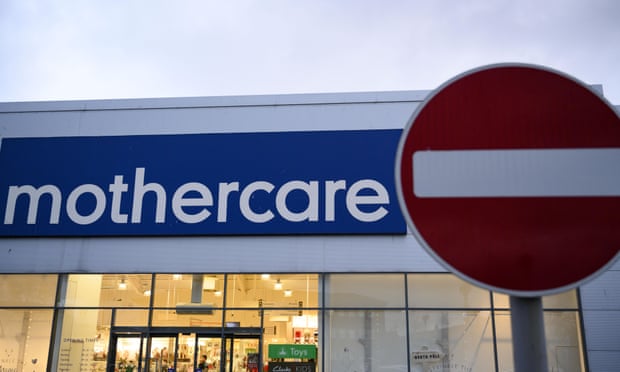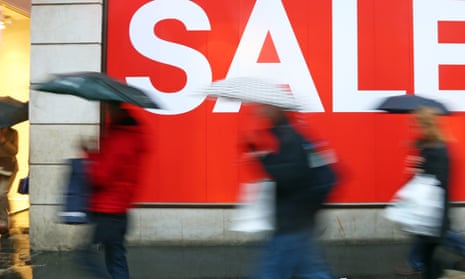Britain’s consumers have reined in spending after an unseasonably cold May prompted a sharp decline in summer clothing sales.
The Office for National Statistics said retail sales dropped by 0.5% in May from a month earlier, the biggest decline in spending this year, after shoppers seemingly had shrugged off Brexit fears earlier in 2019.
The second consecutive monthly fall in consumer spending will fuel concerns over the health of the British economy in the second quarter, at a time of continued uncertainty over Brexit. Although economic growth jumped by 0.5% during the first quarter amid a stockpiling rush ahead of the original Brexit deadline, economists are forecasting weaker growth ahead.
Consumers had seemed to be taking Brexit in their stride, while warm weather at the start of the year had also tempted shoppers to the high street after a tough festive period for UK retailers.
Quick GuideWhy are UK high street retailers in trouble?
Show

What’s the problem?
Physical retailers have been hit by a combination of changing habits, rising costs and broader economic problems as well as the coronavirus pandemic. In the past few years names such as Mothercare, Karen Millen, Toys R Us, Maplin and Poundworld have disappeared from the UK high street as a result.
In terms of habits, shoppers are switching to buying online. Companies such as Amazon have an unfair advantage because they have a lower business rate bill, which holds down costs and enables online retailers to woo shoppers with low prices. Business rates are taxes, based on the value of commercial property, that are imposed on traditional retailers with physical stores.
At the same time, there is a move away from buying "stuff" as more people live in smaller homes and rent rather than buy. Uncertainty about the economy has also slowed the housing market and linked makeovers of homes. Those pressures have come just as rising labour and product costs, partly fuelled by Brexit and the coronavirus, have coincided with economic and political uncertainty that has dampened consumer confidence.
What help do retailers need?
Retailers with a high street presence want the government to change business rates to even up the tax burden with online players and to adapt more quickly to the rapidly changing market. Retailers also want more investment in town centres to help them adapt to changing trends, as well as a cut to high parking charges, which they say put off shoppers. Many businesses which deal with complex supply chains also want additional help with the new red tape and import charges imposed after Boris Johnson's Brexit deal saddled them with extra costs.
What is the government doing?
In the December 2019 Queen's speech, the government announced plans for further reform of business rates including more frequent revaluations and increasing the discount for small retailers, pubs, cinemas and music venues to 50% from one-third. It has also set up a £675m "future high streets fund" under which local councils can bid for up to £25m towards regeneration projects such as refurbishing local historic buildings and improving transport links. The fund will also pay for the creation of a high street taskforce to provide expertise and hands-on support to local areas.
Growth in average pay has remained above inflation for the past 14 months in a row, helping households rebuild their finances after a lost decade for improvements in living standards. Average wages after inflation are still down on the pre-financial crisis peak.
The ONS said the decline in spending at department stores continued last month, reflecting the woes of high street retailers. Department stores including House of Fraser and Debenhams have struggled over the past year, with the loss of jobs and shop closures.
Several other major high street retailers have reported stumbling sales over recent months, including Dixons Carphone, the UK’s biggest electrical and mobile phone retailer, which said on Thursday that profits for the year to 27 April fell by 22%.
The government’s statisticians said that unseasonably cold weather last month had sapped demand for summer clothes, with the volume of clothing sales dropping by 4.5% from a month earlier.
Compared with May 2018, sales were up by 2.3%, the smallest annual jump in sales since October last year. Economists surveyed by Reuters had forecast growth of 2.7%.
Lisa Hooker, consumer markets leader at the accountancy firm PwC, said: “After Easter’s heatwaves, a couple of drizzly bank holidays and a nation pre-occupied by politics, things were never going to bode well for May’s retail sales.”
